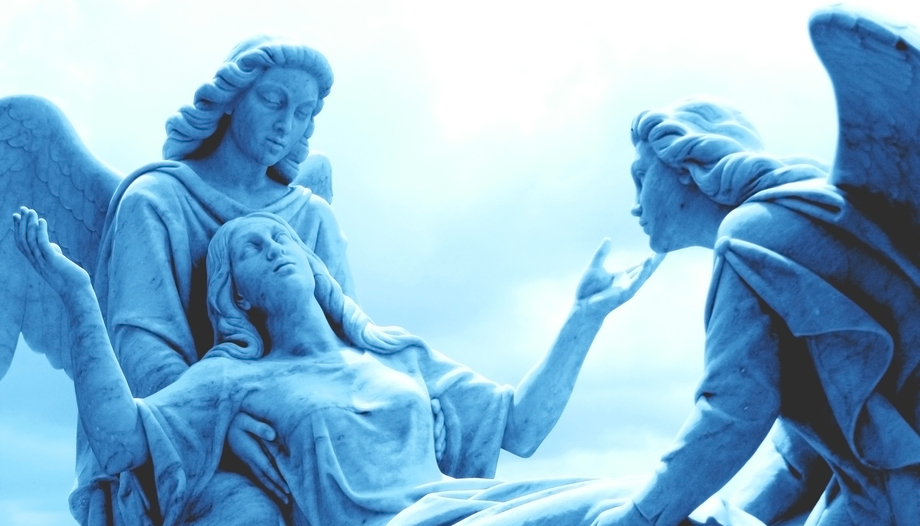On August 15, we celebrate the Asunción This is one of the most popular Christian feasts, but it is based on one of the most unpopular articles of our creed, that of the "resurrection of the flesh": how few believe it!
It would be a curious exercise if we went to one of those crowded shopping avenues where reporters usually do the typical street surveys to ask citizens about their beliefs in life after death. Many would deny us the major; others would affirm without ambiguity to believe in the reincarnation or in the fusion with an ambiguous cosmic energy; if some would dare to speak of an ethereal sky with clouds and angels?But few, very few, would categorically affirm to believe -as the Church affirms- that their body, that is, their own body (hands, feet, teeth, liver, stomach...), will resurrect transfigured at the end of time for eternal life. Do you think the sample would be very different if the survey were made at the door of a parish church at the exit of Mass? I have my doubts.
The dogma of the Assumption of Mary, whose feast we make coincide in mid-August with countless local Marian invocations, proclaims that the Virgin, like her Son, is risen in body and soul and already lives eternally with Him. Mary's fate is the same that awaits us. This is what Jesus promised us. Her only privilege is to have anticipated the moment. She did not have to wait, as we do, for the end of time. VIP treatment for a truly VIP woman, none other than the mother of God.
But why is it so hard for us to believe it? Forgive me for insisting, but the subject seems to me to be very important because it touches the foundation of Christianity: the empty tomb. If Christ has not risen, what does faith consist in?
I think one of the reasons for this disbelief is that it is quite counterintuitive. When someone dies, we see how their body is corrupted. Even if we read the ancient scriptures, the testimonies of the early Christians and say that we expect the resurrection, we do not know very well how it will be because the material disappears in our temporal dimension. Much more intuitive are the Platonic ideas that permeate our culture and Christianity with it.
The classic division between mortal body and immortal soul causes us to fall again and again into a doctrine, the dualistic one, which is contrary to what the Christian community has believed historically and believes today. From time to time, Manichean ideas (also contrary to the deposit of our faith), such as those that seduced St. Augustine and from which he repented so much, in which the body is considered the origin of evil while the spirit is the origin of good, also adhere to us from time to time.
On these two doctrines are based many of the ideological colonizations that Pope Francis has once again denounced in the WYDW and that today permeate the majority of people's thinking. The younger generations, for example, see it as normal to hand over their body on a night out to an unknown person with whom they would not even share their telephone number, because the body is, after all, just matter that will be eaten by the earth. It's like a different reality to me.
On the other hand, there are more and more people who reject their body because they see in it the origin of the evil that affects them. Some do not agree with their sex, others with their silhouette or their face. They see themselves as pure souls (in which there is no room for error) trapped in a (wrong) body and are willing to mutilate it or force it until it has the shape or use they believe to be perfect. There is also the case of those who ask for their ashes to be scattered in this or that idyllic place as a way to stop being themselves and join an impersonal universe.
In the face of these forms of dualism, Manichaeism or practical materialism, the Church affirms that the human being is both a bodily and a spiritual being. Body and soul have dignity. Hence the centuries-old respect for one's own body and that of one's neighbor even after death. For the flesh is not a kind of disposable sheath or shell, but is, in itself, the human being, the perfect work of the Creator, the temple of the Holy Spirit.
Glorify God with your body," St. Paul asked the Corinthians. Mary was a pioneer in this, placing her flesh, her whole life, at the service of God and humanity. And that is why we commemorate the fact that her flesh is now immortal. A piece of advice to celebrate this feast: look at yourselves in the mirror, contemplate every detail (whether you like it or not) thinking, like Mary, that if God has willed it so: "Behold the handmaid of the Lord". Look at your hands, bring them close to your mouth and kiss them: they will accompany you in eternity. And glorify God with them: join them together to pray, extend them to embrace those who need affection or consolation, raise them to help those who need it and clap them to applaud Mary in her assumption into heaven. She awaits us (here and there) in body and soul.
Journalist. Graduate in Communication Sciences and Bachelor in Religious Sciences. He works in the Diocesan Delegation of Media in Malaga. His numerous "threads" on Twitter about faith and daily life have a great popularity.







